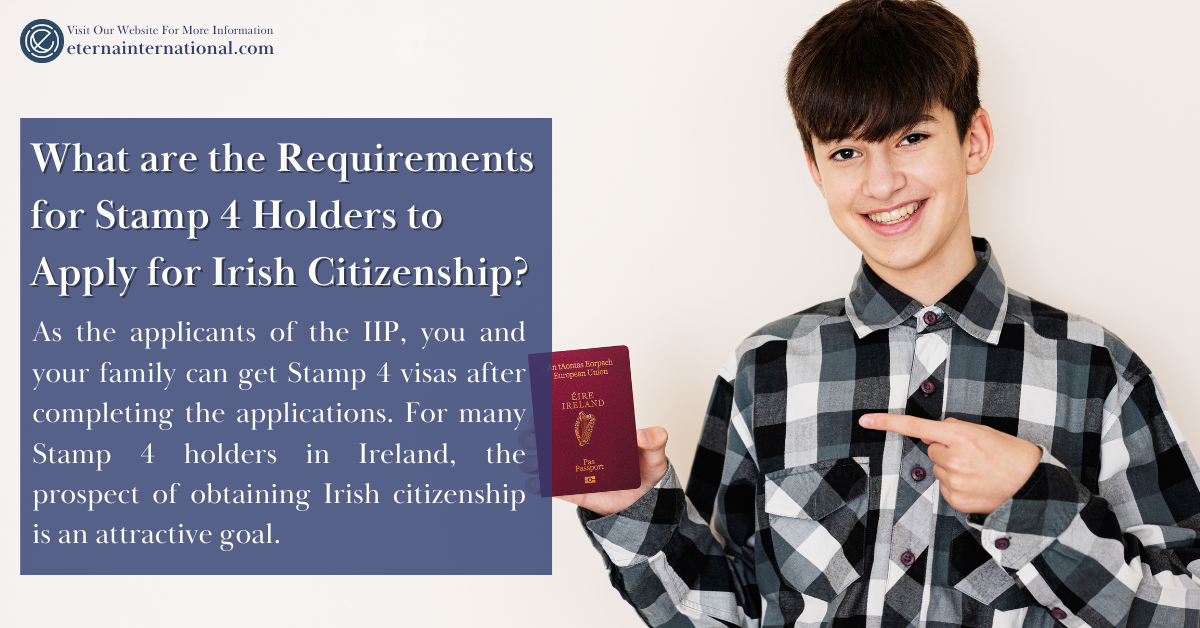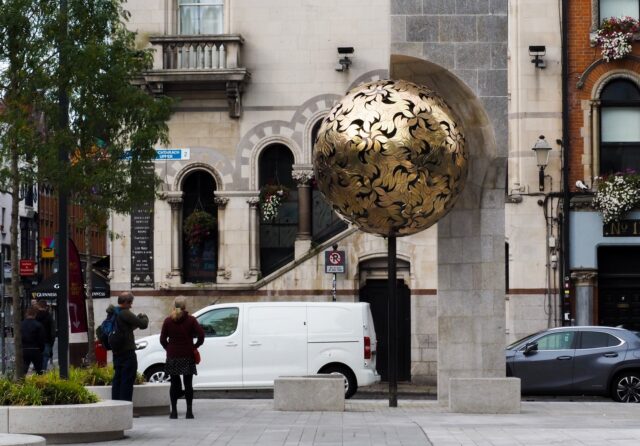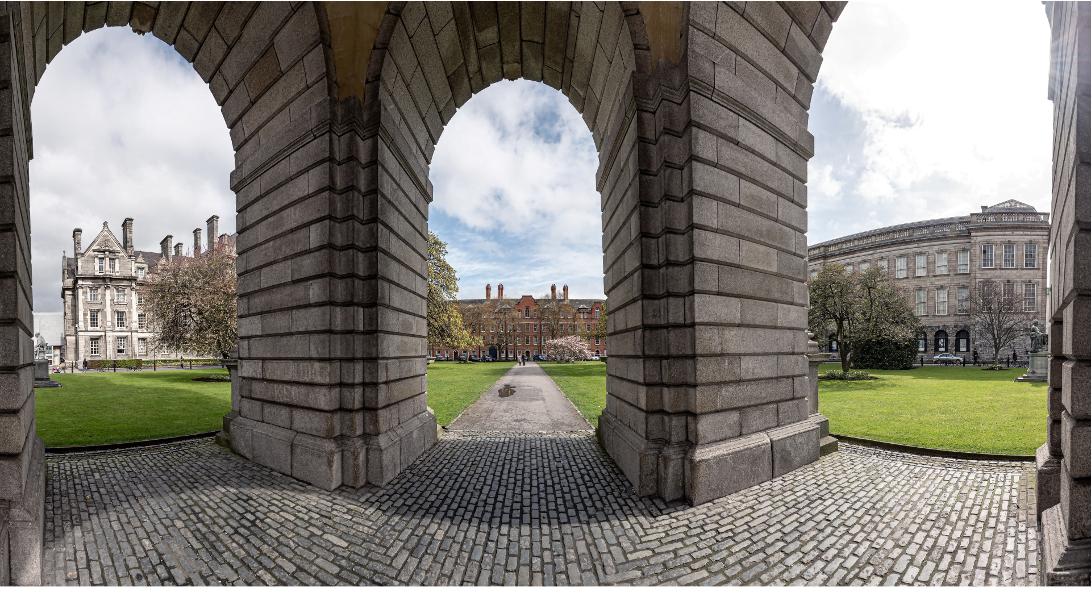Ireland Investor Immigrant Programme sees huge increased applications, the amount so far in 2023 is more than the amount for the entire 12 months of 2022. Despite the closure of the program, applications already submitted are still being processed. As the applicants of the IIP, you and your family can get Stamp 4 visas after completing the applications. For many Stamp 4 holders in Ireland, the prospect of obtaining Irish citizenship is an attractive goal.
For Stamp 4 holders to apply for Irish citizenship through naturalization, they must meet specific residency requirements:
1. Continuous Residence:
Applicants must demonstrate continuous residence in Ireland for the 12 months immediately preceding their application. Continuous residence refers to spending a minimum of 183 days (approximately 6 months) in the country during that time. Meanwhile, if you spend 183 days or more in Ireland in a year, you’ll be regarded as a Tax resident in Ireland, which is important proof to apply for Irish citizenship.
2. Aggregate Residence:
In addition to the continuous residency requirement, applicants must also fulfill an aggregate residency obligation. The applicants must have spent 5 of the past 9 years in residence in Ireland. This stipulates that they must have resided in Ireland for a total of four years during the eight years preceding their application. This amounts to a total of five years of residence (including the continuous residence requirement), which can be calculated as 1,460 days spent in Ireland.
In summary, the applicants need to achieve:
- 365 days immediately before the date that the applicants apply (or 366 days if it includes29 February)
- Plus 1460 days in the 8 years before the period above (plus 1 day for years that include 29 February)
*Non-EU/EEA and non-Swiss nationals should use the naturalization residency calculator. On the calculator enter the dates for each of the periods of permissions granted.
3. Absences:
While meeting the residency requirements, applicants should be aware of the allowable absences from Ireland. They are permitted to spend a maximum of six weeks (42 days) outside the country per year during the five-year qualifying period.
Exceptions may be considered for employment or humanitarian reasons, but these must be well-documented and explained in the application. If the applicants spend more than 6 weeks outside of Ireland in the year immediately before their application, they may have to wait until the following year to make an application.
4. Proof of Residence:
To substantiate their residency claims, applicants must provide sufficient evidence. This may include documentation such as utility bills, bank statements, or letters from employers or educational institutions, which demonstrate the applicant’s presence in Ireland throughout the qualifying period.
5. Immigration Status:
At the time of application, Stamp 4 holders must have legal permission to reside in Ireland. They must provide evidence of their immigration status, such as a valid Irish Residence Permit (IRP) or a Garda National Immigration Bureau (GNIB) card.
6. Fees and Processing: The applicants must use the most up-to-date versions of the application forms on the Immigration Service Delivery website and prepare for both the application and certification fee in advance. Application fee: A fee of €175 applies for each application. There are no exceptions and fees will not be waived. Fees cannot be refunded, even if the application is refused. Certification fee: If the application is approved, the applicant must pay a certification fee to receive your Certificate of Naturalisation:
- €950 – Adult
- €200 – Minor
- €200 – Widow, Widower, or Surviving Civil Partner of an Irish citizen
- €0 – Recognised refugee or stateless person. Fees must be paid by all applicants (except as shown). There are no exceptions and fees cannot be waived or refunded. Currently, the application takes 19 months approximately for a straightforward application to be processed from the date it is received to the date a decision is made. However, processing times can vary depending on the circumstances. During the progress, if any documents are missing, the applicant may be given up to 28 days to provide them. If the applicant fails to do so, the application may be deemed ineligible or refused.
In the end, after you become an Irish citizen, the applicant can apply for a passport, which is one of the most powerful passports in the world, via the Department of Foreign Affairs.





